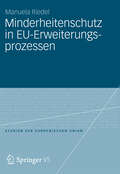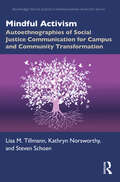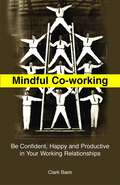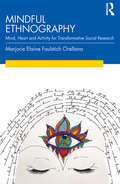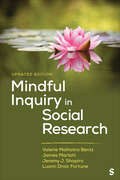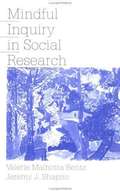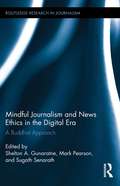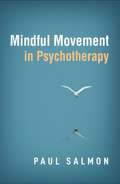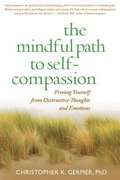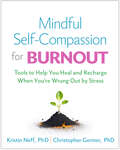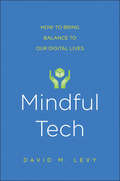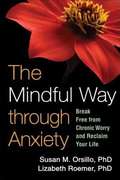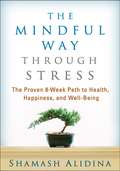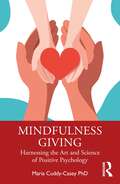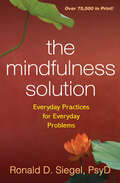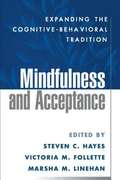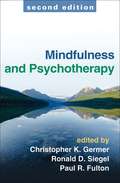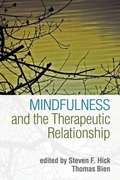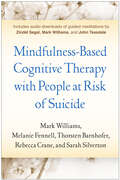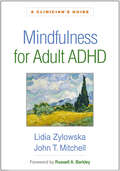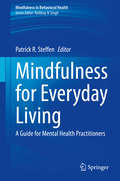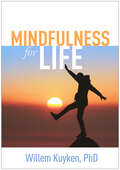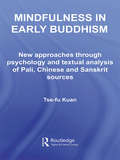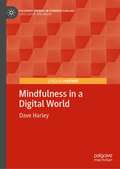- Table View
- List View
Minderheitenschutz in EU-Erweiterungsprozessen
by Manuela RiedelIm Vertrag von Lissabon wird die Wahrung der Rechte von Minderheiten ausdrücklich als Wert der Europäischen Union und ihrer Mitgliedstaaten genannt. Manuela Riedel arbeitet heraus, wie sich der Schutz von Minderheiten von einem zunächst nur im Rahmen von EU-Erweiterungsprozessen relevanten Kriterium zu einem gemeinsamen europäischen Wert entwickeln konnte. Hierzu analysiert die Autorin die von einem Spannungsfeld von Werten und Sicherheitsinteressen bestimmten Prozesse, Motive und Akteure, die die von den Beitrittsländern zu erfüllenden Minderheitenschutzstandards geprägt haben. Anhand der parallelen Beobachtung der EU-internen Entwicklung zeigt die Autorin, dass der im Zuge der Beitrittsvorbereitungen weiterentwickelte Schutz von Minderheiten schrittweise in die für alle Mitgliedstaaten geltenden Vertragswerke und Politiken integriert wurde und somit künftig nicht nur in EU-Beitrittsverhandlungen, sondern auch in der Europäischen Union als politikfeldübergreifendes Thema stärker an Bedeutung gewinnen wird.
Mindful Activism: Autoethnographies of Social Justice Communication for Campus and Community Transformation (Routledge Social Justice Communication Activism Series)
by Lisa M. Tillmann Kathryn Norsworthy Steven SchoenThis collection immerses scholars of communication and related disciplines in narratives of and conversations about social-justice-focused activism. Through autoethnographic essays, Mindful Activism chronicles the authors’ experiences as activist academics challenging and seeking to remedy injustices on campus and in local and global communities. Those experiences range from engaging in a single activist act to collaborating over many years with oppressed communities and social change groups. Building upon communication activism research and following a liberation-based transformative learning model, the book shows both activism in action and deep reflection on that activism. The authors re-experience activist experiences, draw out lessons, and invite readers to apply those to their own social justice endeavors. Mindful Activism also demonstrates how mindfulness supports activists in deepening their awareness and understanding of themselves, others, and social systems. This orientation increases the likelihood that activists will remain grounded enough to respond to injustice mindfully/effectively. The book will enrich courses on activism, social justice, dialogue, narrative inquiry, qualitative methods, autoethnography, and general graduate studies, and will resonate with scholars committed to building a more equitable and just world.
Mindful Co-Working: Be Confident, Happy and Productive in Your Working Relationships
by Clark BaimTransform and enhance your working relationships through mindful co-working. Are you making the most of your co-working relationships? Most of us work with others and spend as much time with colleagues as we do with our families - so it's important our working relationships run smoothly. By helping workers become more attuned to their colleagues, mindful co-working removes the pressure and stress of competition from working relationships to make them both more enjoyable and more effective. Author Clark Baim shares the secrets he has learned with co-workers and co-trainers during more than 2,000 training workshops. He also includes practical exercises and useful tools to help you perfect the art, whatever field you work in. This indispensable guide to co-working is required reading for anyone who wants to work confidently with colleagues - and enjoy it!
Mindful Ethnography: Mind, Heart and Activity for Transformative Social Research
by Marjorie Faulstich OrellanaEthnography, with all its limitations, has as its strongest impulse the quest to see and understand “others” on their own terms and to step out of our own viewpoints in order to do so. Conjoining ethnography with mindfulness, this book aims to support the best aspects of ethnography by enhancing the capacity to listen more deeply, see more expansively, keep a check on our biases and connect more compassionately with others. Mindful Ethnography addresses a central dilemma of ethnography: the relationship of self and other. It suggests ways of viewing the world from different perspectives, getting beyond the categories of our culture and working with our own thoughts and feelings even as we aim to understand those of our participants. Chapters address various stages of ethnographic research: entering a field and seeing it for the first time, immersing in ongoing participant observation, writing up elaborated fieldnotes, analysis, the re-presentation of results and letting it go. It offers illustrations and activities for researchers to try. The book is aimed at students and researchers who are stepping into the craft of ethnography or looking for new ways in and through ethnographic research. It is for researchers who want to integrate scholarship, social activism and spiritual pursuits in order to do research that is deeply engaged with and transformative of the world.
Mindful Inquiry in Social Research
by Valerie Malhotra Bentz Jeremy J. Shapiro James Marlatt Luann Drolc FortuneThe first edition of this classic text introduced researchers and students to a broad range of approaches that are grounded philosophically and are relevant to real contexts. This new edition reflects developments in social research and changes in the global environment. The authors broaden their conception of mindfulness, and show how mindful inquirers can maximize positive outcomes for participants, organizations, communities, and themselves. The first five chapters describe the application of mindful inquiry, and the following nine introduce cultures of inquiry and research traditions, theories, methods, and techniques. Chapters contain activities that provide immediate engagement with learning, suggested readings, and lists of skills for researchers.
Mindful Inquiry in Social Research
by Valerie Malhotra Bentz Jeremy J. Shapiro James Marlatt Luann Drolc FortuneThe first edition of this classic text introduced researchers and students to a broad range of approaches that are grounded philosophically and are relevant to real contexts. This new edition reflects developments in social research and changes in the global environment. The authors broaden their conception of mindfulness, and show how mindful inquirers can maximize positive outcomes for participants, organizations, communities, and themselves. The first five chapters describe the application of mindful inquiry, and the following nine introduce cultures of inquiry and research traditions, theories, methods, and techniques. Chapters contain activities that provide immediate engagement with learning, suggested readings, and lists of skills for researchers.
Mindful Inquiry in Social Research
by Valerie Malhotra Bentz Jeremy J. ShapiroInnovative introduction to research in the social and human sciences, guides students through the maze of research traditions, cultures of inquiry, and epistemological frameworks that blanket the intellectual landscape. Mindful inquiry empowes the researcher both psychologically and philosophically by putting the researcher, rather than research techniques, at the center of the research process.
Mindful Journalism and News Ethics in the Digital Era: A Buddhist Approach (Routledge Research in Journalism)
by Mark Pearson Shelton A. Gunaratne Sugath SenarathThis book aims to be the first comprehensive exposition of "mindful journalism"—drawn from core Buddhist ethical principles—as a fresh approach to journalism ethics. It suggests that Buddhist mindfulness strategies can be applied purposively in journalism to add clarity, fairness and equity to news decision-making and to offer a moral compass to journalists facing ethical dilemmas in their work. It comes at a time when ethical values in the news media are in crisis from a range of technological, commercial and social factors, and when both Buddhism and mindfulness have gained considerable acceptance in Western societies. Further, it aims to set out foundational principles to assist journalists dealing with vulnerable sources and recovering from traumatic assignments.
Mindful Movement in Psychotherapy
by Paul SalmonMany mental health clinicians--even those well acquainted with mindfulness--still view physical, body-oriented techniques as outside their scope of practice. In this accessible book, clinical psychologist, exercise physiologist, and yoga and mindfulness teacher Paul Salmon gives therapists of any orientation the tools to use mindful movement with clients. Salmon shows how simple practices like breathing, walking, and yoga-like stretches can help clients center their attention in the present moment with curiosity and self-acceptance. He summarizes research on the benefits of movement for specific mental and physical health conditions and provides vivid case examples and scripts. Purchasers get access to a companion website where they can download audio recordings of 29 guided practices.
Mindful Path to Self-Compassion
by Christopher Germer"Buck up." "Stop feeling sorry for yourself." "Don t ruin everything." When you are anxious, sad, angry, or lonely, do you hear this self-critical voice? What would happen if, instead of fighting difficult emotions, we accepted them? Over his decades of experience as a therapist and mindfulness meditation practitioner, Dr. Christopher Germer has learned a paradoxical lesson We all want to avoid pain, but letting it in--and responding compassionately to our own imperfections, without judgment or self-blame--are essential steps on the path to healing. This wise and eloquent book illuminates the power of self-compassion and offers creative, scientifically grounded strategies for putting it into action. You'll master practical techniques for living more fully in the present moment especially when hard-to-bear emotions arise--and for being kind to yourself when you need it the most. Free audio downloads of the meditation exercises are available at the author's website www.mindfulselfcompassion.org.
Mindful Self-Compassion for Burnout: Tools to Help You Heal and Recharge When You're Wrung Out by Stress
by Kristin Neff Christopher Germer"I'm tired of feeling stressed out every day." "I can't stand having so little impact, despite caring so much and working so hard." "I just don't have anything left to give." Over years of developing and teaching their renowned Mindful Self-Compassion program, Kristin Neff and Christopher Germer have found MSC to be uniquely helpful for people struggling with the soul-draining depletion of burnout--from health care professionals, teachers, and caregivers, to tapped-out business owners and employees. Each chapter in this engaging book offers an empathic story of someone stretched to their limits and an easily digestible bite of self-compassion that culminates in a simple anti-burnout tool based on MSC practices. Learn quick and powerful ways to recharge your batteries, de-stress, and, above all, be kind to yourself--so you can be there for others.
Mindful Tech
by David M. LevyFrom email to smart phones, and from social media to Google searches, digital technologies have transformed the way we learn, entertain ourselves, socialize, and work. Despite their usefulness, these technologies have often led to information overload, stress, and distraction. In recent years many of us have begun to look at the pluses and minuses of our online lives and to ask how we might more skillfully use the tools we've developed. David M. Levy, who has lived his life between the "fast world" of high tech and the "slow world" of contemplation, offers a welcome guide to being more relaxed, attentive, and emotionally balanced, and more effective, while online. In a series of exercises carefully designed to help readers observe and reflect on their own use, Levy has readers watch themselves closely while emailing and while multitasking, and also to experiment withunplugging for a specified period. Never prescriptive, the book opens up new avenues for self-inquiry and will allow readers-in the workplace, in the classroom, and in the privacy of their homes-to make meaningful and powerful changes. "
Mindful Way through Anxiety
by Susan OrsilloYou can't just "get over" anxiety. In fact, the very things most people do to try to feel better--avoiding feared situations, pushing worry out of mind only make the problem worse. Leading psychologists Susan M. Orsillo and Lizabeth Roemer present a powerful new alternative that can help you break free of anxiety by fundamentally changing how you relate to it. With clarity and compassion, this book describes clinically tested mindfulness practices specifically tailored for anxiety in its many forms. Learn step-by-step strategies for gaining awareness of anxious feelings without letting them escalate; loosening the grip of worry and fear; and achieving a new level of emotional and physical well-being. Free audio downloads of mindfulness exercises plus other resources are available at the authors' website, www.mindfulwaythroughanxietybook.com.
Mindful Way through Stress
by Shamash AlidinaTake a deep breath. Feeling less stressed already? Bestselling author Shamash Alidina shows just how simple it is to master the proven techniques of mindfulness-based stress reduction (MBSR) in this engaging guide. MBSR has enhanced the physical and emotional well-being of hundreds of thousands of people around the world. In as little as 10 minutes a day over 8 weeks, you'll be taken step by step through a carefully structured sequence of guided meditations (available to purchasers for download at the companion website) and easy yoga exercises. Vivid stories, everyday examples, and opportunities for self-reflection make the book especially inviting. Science shows that MBSR works--and now it is easier than ever to get started.
Mindfulness Giving: Harnessing the Art and Science of Positive Psychology
by Maria Cuddy-CaseyThis accessible book offers a unique, evidence-based perspective on the art and science of giving. It combines concepts from psychology, neuroscience and social science theory with stories from interviewees on their experiences as a giver and receiver.This book offers a holistic overview of the reciprocal aspects of giving, strategies for selecting a recipient of a gift in a never-ending sea of need, and a guide to developing one’s personal philosophy, boundary, and plan on giving. As people seek to reconnect and find meaning, this book offers a venue for exploration. Covering topics such as empowering children to give, the financial considerations of giving, compassion fatigue and how to set healthy boundaries, this book helps readers think about unique ways of giving. Through the use of action plans and worksheets, readers are encouraged to consider their own place in giving, empower themselves as a change agent, and recognize the positive social power and ripple effect of giving.Mindfulness Giving is valuable reading for students of positive psychology, social and health psychology, social work, and sociology, as well as professionals and coaches working in self-improvement and self-care.
Mindfulness Solution
by Ronald SiegelMindfulness offers a path to well-being and tools for coping with life's inevitable hurdles. And though mindfulness may sound exotic, you can cultivate it--and reap its proven benefits--without special training or lots of spare time. Trusted therapist and mindfulness expert Dr. Ronald Siegel shows exactly how in this inviting guide. You'll get effective strategies to use while driving to work, walking the dog, or washing the dishes, plus tips on creating a formal practice routine in as little as 20 minutes a day. Flexible, step-by-step action plans will help you become more focused and efficient in daily life; cope with difficult feelings, such as anger and sadness; deepen your connection to your spouse or partner; feel more rested and less stressed; curb unhealthy habits; find relief from anxiety and depression; and resolve stress-related pain, insomnia, and other physical problems. Free audio downloads of the meditation exercises are available at the author's website www.mindfulness-solution.com. Start living a more balanced life--today.
Mindfulness and Acceptance
by Victoria Follette Steven HayesThis volume examines the role of mindfulness principles and practices in a range of well-established cognitive and behavioral treatment approaches. Leading scientist-practitioners describe how their respective modalities incorporate such nontraditional themes as mindfulness, acceptance, values, spirituality, being in relationship, focusing on the present moment, and emotional deepening. Coverage includes acceptance and commitment therapy, dialectical behavior therapy, mindfulness-based cognitive therapy, integrative behavioral couple therapy, behavioral activation, and functional analytic psychotherapy. Contributors describe their clinical methods and goals, articulate their theoretical models, and examine similarities to and differences from other approaches.
Mindfulness and Psychotherapy, Second Edition
by Ronald D. Siegel Paul R. Fulton Christopher K. GermerThis practical book has given tens of thousands of clinicians and students a comprehensive introduction to mindfulness and its clinical applications. Leading practitioners in the field present clear-cut procedures for implementing mindfulness techniques and teaching them to patients experiencing depression, anxiety, chronic pain, and other problems. Also addressed are ways that mindfulness practices can increase acceptance and empathy in the therapeutic relationship. The book describes the philosophical underpinnings of mindfulness and reviews the growing body of treatment studies and neuroscientific research. User-friendly features include illustrative case examples and practice exercises. New to This Edition *Incorporates significant empirical advances--mindfulness has become one of the most-researched areas in psychotherapy. *Most chapters extensively revised or rewritten. *Chapters on practical ethics, trauma, and addictions. *Greater emphasis on the role of acceptance and compassion in mindfulness.
Mindfulness and the Therapeutic Relationship
by Thomas Bien Steven HickA number of books have explored the ways psychotherapy clients can benefit from learning and practicing mindfulness. This is the first volume to focus specifically on how mindfulness can deepen the therapeutic relationship. Grounded in research, chapters demonstrate how therapists' own mindfulness practice can help them to listen more attentively and be more fully present. Leading proponents of different treatment approaches-including behavioral, psychodynamic, and family systems perspectives-illustrate a variety of ways that mindfulness principles can complement standard techniques and improve outcomes by strengthening the connection between therapist and client. Also presented are practical strategies for integrating mindfulness into clinical training.
Mindfulness and the Transformation of Despair
by J. Mark Williams Melanie Fennell Sarah Silverton Rebecca Crane Thorsten BarnhoferGrounded in extensive research and clinical experience, this book describes how to adapt mindfulness-based cognitive therapy (MBCT) for participants who struggle with recurrent suicidal thoughts and impulses. Relevant to all mindfulness teachers, a comprehensive framework is presented for understanding suicidality and its underlying vulnerabilities. The preliminary intake interview and each of the eight group mindfulness sessions of MBCT are discussed in detail, highlighting issues that need to be taken into account with highly vulnerable people. Assessment guidelines are provided and strategies for safely teaching core mindfulness practices are illustrated with extensive case examples. The book also discusses how to develop the required mindfulness teacher skills and competencies. Purchasers get access to a companion website featuring downloadable audio recordings of the guided mindfulness practices, narrated by Zindel Segal, Mark Williams, and John Teasdale. See also Mindfulness-Based Cognitive Therapy for Depression, Second Edition, by Zindel Segal, Mark Williams, and John Teasdale, the authoritative presentation of MBCT.
Mindfulness for Adult ADHD: A Clinician's Guide
by Lidia Zylowska John T. MitchellMindfulness has emerged as a valuable component of treatment for adults with attention-deficit/hyperactivity disorder (ADHD). This concise manual presents an evidence-based group intervention specifically tailored to the needs of this population. The Mindful Awareness Practices for ADHD (MAPs) program helps participants cultivate self-regulation of attention, emotions, and behavior; awareness of ADHD challenges; self-acceptance; and self-compassion. With a stepwise teaching approach and meditation periods that are shorter than in other mindfulness programs, MAPs is designed to optimize learning. Included are step-by-step instructions for conducting the eight sessions, scripts for guided meditations, 33 reproducible handouts, and &“Adaptation for Individual Therapy&” boxes. Purchasers get access to a companion website where they can download printable copies of the handouts and audio recordings of the guided practices.
Mindfulness for Everyday Living: A Guide for Mental Health Practitioners (Mindfulness in Behavioral Health)
by Patrick R. SteffenThis book presents practical approaches for integrating mindfulness principles into daily life. It examines how to incorporate mindfulness principles into interventions across various fields and with different client populations. In addition, the volume describes how to teach clients to integrate mindfulness techniques into daily living – from general stress reduction and compassionate positive living to working with children with medical conditions or autism to mindful parenting and healthy marriages. The book explains key concepts clearly and succinctly and details practical daily approaches and use. Each chapter presents cutting-edge research that is integrated into effective, proven interventions that represent the gold standard of care and are simple and powerful to use, and concludes with recommendations on how each individual can create his or her own personalized mindfulness approach that matches his or her needs and situation. This book is a must have resource for clinicians, therapists, and health professionals as well as researchers, professors, and graduate students in clinical psychology, psychotherapy/counseling, psychiatry, social work, and developmental psychology.
Mindfulness for Life
by Willem KuykenMindfulness is exceptionally easy to get started with, and people often experience benefits almost immediately. Why, then, do many initial enthusiasts end up dropping the practice after a short while? According to Oxford professor and leading mindfulness expert Willem Kuyken, it's because traditional mindfulness training is too far removed from how we actually live. This next-generation resource brings mindfulness home by teaching core skills in easy-to-integrate ways that touch directly on life's daily challenges. Dr. Kuyken provides stepping stones to help you build a personal practice that is sustainable, purposeful, and richly rewarding--now and for years to come. Interweaving ancient wisdom and modern scientific psychology, the book includes stories, quotations, reflection questions, tips for overcoming hurdles, and compelling guided practices, including audio tracks at the companion website.
Mindfulness in Early Buddhism: New Approaches through Psychology and Textual Analysis of Pali, Chinese and Sanskrit Sources (Routledge Critical Studies in Buddhism)
by Tse-fu KuanThis book identifies what is meant by sati (smrti), usually translated as ‘mindfulness’, in early Buddhism, and examines its soteriological functions and its central role in the early Buddhist practice and philosophy. Using textual analysis and criticism, it takes new approaches to the subject through a comparative study of Buddhist texts in Pali, Chinese and Sanskrit. It also furnishes new perspectives on the ancient teaching by applying the findings in modern psychology. In contemporary Buddhism, the practice of mindfulness is zealously advocated by the Theravada tradition, which is the only early Buddhist school that still exists today. Through detailed analysis of Theravada's Pali Canon and the four Chinese Agamas - which correspond to the four main Nikayas in Pali and belong to some early schools that no longer exist - this book shows that mindfulness is not only limited to the role as a method of insight (vipassana) meditation, as presented by many Theravada advocates, but it also has a key role in serenity (samatha) meditation. It elucidates how mindfulness functions in the path to liberation from a psychological perspective, that is, how it helps to achieve an optimal cognitive capability and emotional state, and thereby enables one to attain the ultimate religious goal. Furthermore, the author argues that the well-known formula of ekaayano maggo, which is often interpreted as ‘the only way’, implies that the four satipa.t.thaanas (establishments of mindfulness) constitute a comprehensive path to liberation, and refer to the same as kaayagataa sati, which has long been understood as ‘mindfulness of the body’ by the tradition. The analysis shows that kaayagataa sati and the four satipa.t.thaanas are two different ways of formulating the teaching on mindfulness according to different schemes of classification of phenomena.
Mindfulness in a Digital World (Palgrave Studies in Cyberpsychology)
by Dave HarleyUsing a lens of mindfulness, this book explores how digital dependencies can displace attention and undermine attentional control, leading to experiences of stress and mindless involvement with digital technology. Using qualitative interviews with teachers and students of mindfulness programmes, the book explores the challenges and opportunities for reconciling digital interactions with mindful practice. A phenomenological analysis of participants’ digital experiences shows three different imperatives (relating to digital capabilities, hyper-reality and algorithms), that can drive unconscious forms of interaction and encourage a delegation of attentional control that draws users away from the present moment. The book concludes by exploring the implications of these (extra-conscious) imperatives for understanding digital addiction. It also provides a set of guidelines for a digital approach to mindfulness practice that can encourage beneficial relationships with digital technology into the future.
